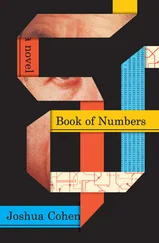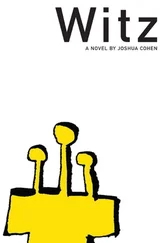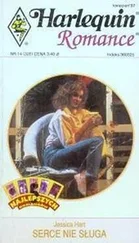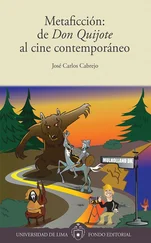Beneath the Flatiron’s fancy cladding, undergirding the swooping loops and oriels — the limestone base and glazed terra cotta facade are in no way loadbearing — is that metal, the steel, which was Rog Reardon’s assignment. From that second week of class he began spending a lot of time at a foundry just outside town that was closed when the company that had owned it was bought by another company that was bought by another company that moved to Mexico. As the foundry had fired Rog’s father and uncles, it was Rog’s pleasure to rehire them and refire the works. These metalworkers, family and those unrelated but friends and acquaintances, were happy to be employed, less happy to be so on the condition that Rog apprentice as mill supervisor. But Rog proved adept, a swift learner. Greener, it should be understood, had a phenomenal sense for assignments, and besides the useful fortuity of Rog coming from a steelmaking family, it also helped that the novel he’d been neglecting since junior year was imprecise about its narrator’s identity, relationships, and ambitions, abstract in its philosophy, sloppy with flashback and dream, and what it needed, what Rog needed, was nothing more than dense hard verbs, relentlessly accurate adjectives, and the active immediacy of the present tense. By midterm, Rog had become an expert, rallying the townie workers to their largest job in decades. Today Mr. Reardon serves as foreman and half owner, with the university, of the foundry, and is arguably the best, most successful steelman in the state (his daughter — Raina? Raisa? has been in every one of Veri’s classes through high school, though I don’t know why they never got along — Veri says she’s spoiled).
Moreton did the foundation work and now has a prospering cement business of his own out of the county seat (he also owns part interest in a quarry). He set our house and has become a good, thorough, methodical, even plodding man, which every time I bump into him — in line at the hardware emporia, at the gas stations by the Route 70 onramp — unsettles me, given that the problem with his writing was that it’d lacked what he now supplies so well: the groundsill, the footings, a bottom. He, a poet, used to be a sound guy, a line freak, just making weak beams of pretty and pretty shocking words to tickle the ear (he’d mix metaphors too), but there’d be no formal structure, no prosodic meter, just stray vowels and consonants, snippets he’d heard and read in Eagle Avenue cafés floating as moments — occasions — without anchor or ballast. Greener — I think, I have to think though he never said anything about his selections — intuited this and sent him delving into bedrock, wood pilings, concrete, rebar. This was his specialty, Greener’s, countering a writer’s faults — supposed faults because Greener had read only one submission by each student — with a physical, practical correction.
Sora, who’d overwrite and overcharacterize and overdetermine and overexplain and just spoonfeed you, the reader, everything — she’d tell you what clothes a character was wearing only when it had no bearing on her story, she’d cite exactly what kind of meals her villain was munching when it had precisely nothing to do with advancing her arc or deepening characterization (why should it matter that her Alaskan psychic lesbian spy preferred spotted jumpers belted with appliqué flowers, pink pigskin gloves, and purplestriped, kneehigh galoshes, a strict diet of turkey chili and fries?) — Greener, with his genius, turned her transparent, light and free and freely pertinent. He made her our glazier, and wouldn’t you know it, she’s become our own home’s window woman, and is even developing an exclusive make of energysaving window that reduces heating costs, has a screen that can be raised only from the top sash as a child safety feature, and, I remember, Dem was just telling me — Dem’s in touch with her from the gym and PTA — that it recently won some national design award. Congrats, Sora! Let’s catch up sometime!
As Bau’s poems were always scatological — clogged to their brims with sex, piss, and shit — Greener, as if imparting a moral lesson, put him on plumbing, while Lo — whose poems and ersatz fairy and folktales, in contemporary settings, were so precious and vapidly schematic — was assigned to electrical. Of course they’re married now, Bau and Lo, and in business together and, though Dem and I don’t get together with them more than once a year since they transferred west to tend to Lo’s mother when she stroked herself into dementia, we still think of them often and fondly. Two kids, boys: Maury, a hapless pick, after the prof, and don’t quote me on this, Billy Jr.
As for Dem, to Greener’s mind — and to ours as well, though it took time and the necessity of dual incomes for us to countenance this — her poems were all surface gaiety, superficially stunning in their detail but emotionally empty: no amount of technique, and Dem had tons, could compensate for her being so private and timid, withdrawn. But how to teach emotion? How to teach the turning of the insides out? Greener had a solution (to get inside her he had to extrovert her first, that was my reaction). He put her in charge of interior decoration, her brief being not to duplicate the interior of the building as it was at the time of its construction — we weren’t getting into any period furniture, anyway how to find such records, if there were any such records — neither to duplicate the interior at present, or at the present of the century’s turn, rather to create a new interior, “one conducive,” Greener handwrote in a memo Dem typed for herself on a computer afforded her by the engineering department (its only cooperation), “to conducting literature classes & writing workshops &c.”
“Show me comfort.”
“Make for me an ideal.”
Being the only position with any modicum of creative control, this was a major honor and Dem knew it but also knew it meant that she and Greener would be spending hours of overtime together, alone, poring over that ratty portfolio she hauled to the site daily — crammed with paint swatches (the multiple offs: the laces, pearls, ivoire), fabric samples (tanned durables), clippings of any pattern wallpaper that caught fancy — though he tried to kiss her only once.
It was then — Dem coming home blushing sunset — that I flipped, showed up on the lawn of his faculty bungalow an hour later, screaming into the dark, Come on out, motherfucker, I will scalp you of your fucking testicles, and out Greener came in his tightywhities with a red, yellow, and green stoplight plaid robe blown loosely around him, wielding only a scroll of blueprints like a scopic spear, saying, That’s right, Pat, that’s what’s wrong with your work — it’s all impulse, it’s all energy, it’s good impulse, sure, it’s good energy, fine, the right true spirit, but still that’s not enough, it goes nowhere, you have nothing planned (waving the cyanotypes into blackness), nothing kept in reserve (stamping his feet, one bare, the other fuzzy, sheepishly slippered).
What the hell’s wrong with my work?
What were you going to do, kill me? What were you thinking?
I don’t know.
Bingo. You have no forethought — you just start a sentence without knowing how it ends, without knowing where or when it ends. Capital letter, then you skimp on anything that comes before the closing punctuation — if there’s any punctuation.
I was panting, snuffle, mucus.
Put commas between your instincts, parse reflexes into clauses — the same goes for your personal life.
I attended this lecture — I always had perfect attendance.
So I made a move on Dem — so what? she rebuffed me. You’re too much the idiot to recognize what’s essential: she doesn’t want me, she wants you.
Читать дальше












